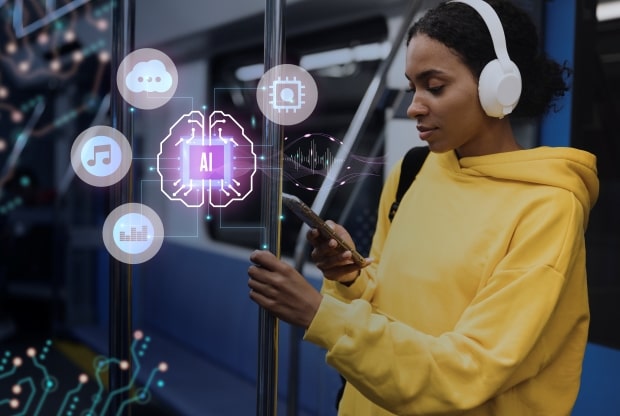In the fast-paced digital landscape of the 21st century, content creation has become both an art and a science. From crafting compelling blog posts to producing engaging social media content, the demand for high-quality material is incessant. However, with the advent of artificial intelligence (AI), the way content is created is undergoing a profound transformation. AI-driven content creation tools are revolutionizing the creative process, offering unprecedented efficiency, scalability, and innovation.
Unleashing Creativity with AI
Traditionally, content creation relied heavily on human input, from brainstorming ideas to drafting, editing, and polishing the final product. While human creativity remains unparalleled, AI has emerged as a powerful ally, augmenting the creative process in ways previously unimaginable. AI-powered tools leverage advanced algorithms and machine learning techniques to analyze vast amounts of data, identify trends, and generate content tailored to specific audiences.
The Power of Natural Language Processing (NLP)
At the heart of AI-driven content creation tools lies natural language processing (NLP), a branch of AI that focuses on understanding and interpreting human language. NLP algorithms can analyze text, extract meaningful insights, and even generate coherent and contextually relevant content. Whether it’s writing product descriptions, crafting marketing copy, or generating personalized email campaigns, NLP-powered tools enable marketers and content creators to streamline their workflow and deliver impactful content at scale.
Enhancing Visual Content Creation
While text-based content is vital, visual content has become increasingly important in capturing audience attention and conveying messages effectively. AI-driven tools are now equipped with computer vision capabilities, allowing them to analyze images, videos, and graphics to generate visually stunning content. From designing logos and infographics to editing photos and creating videos, these tools empower designers and marketers to unleash their creativity without being bound by technical limitations.
Personalization at Scale
In today’s hyper-connected world, consumers expect personalized experiences tailored to their interests and preferences. AI-driven content creation tools excel in delivering personalized content at scale, leveraging data-driven insights to understand individual behaviors and preferences. By dynamically generating content based on user interactions and engagement metrics, marketers can create highly targeted campaigns that resonate with their audience on a deeper level, driving conversion and loyalty.
Streamlining Content Production
One of the most significant advantages of AI-driven content creation tools is their ability to streamline the production process, reducing time-to-market and operational costs. By automating repetitive tasks such as content ideation, keyword research, and proofreading, these tools free up valuable time for content creators to focus on higher-level tasks that require human creativity and strategic thinking. Moreover, AI-powered analytics provide actionable insights into content performance, enabling marketers to optimize their strategies for maximum impact.
Overcoming Challenges and Ethical Considerations
While AI-driven content creation tools offer immense potential, they also pose certain challenges and ethical considerations. For instance, there are concerns about the quality and authenticity of AI-generated content, as well as the potential for bias in algorithms. Additionally, there are questions surrounding intellectual property rights and the implications of widespread automation on employment in the creative industries. Addressing these challenges requires careful consideration and ongoing dialogue between technologists, content creators, and policymakers.
Conclusion: Embracing the Future of Content Creation
AI-driven content creation tools represent a paradigm shift in the way content is conceptualized, produced, and distributed. By harnessing the power of AI, marketers and content creators can unlock new possibilities for creativity, personalization, and efficiency. However, realizing the full potential of these tools requires a balanced approach that embraces innovation while addressing ethical concerns and ensuring human oversight. As we navigate the evolving landscape of content creation, one thing is clear: the future belongs to those who embrace the transformative power of AI.

